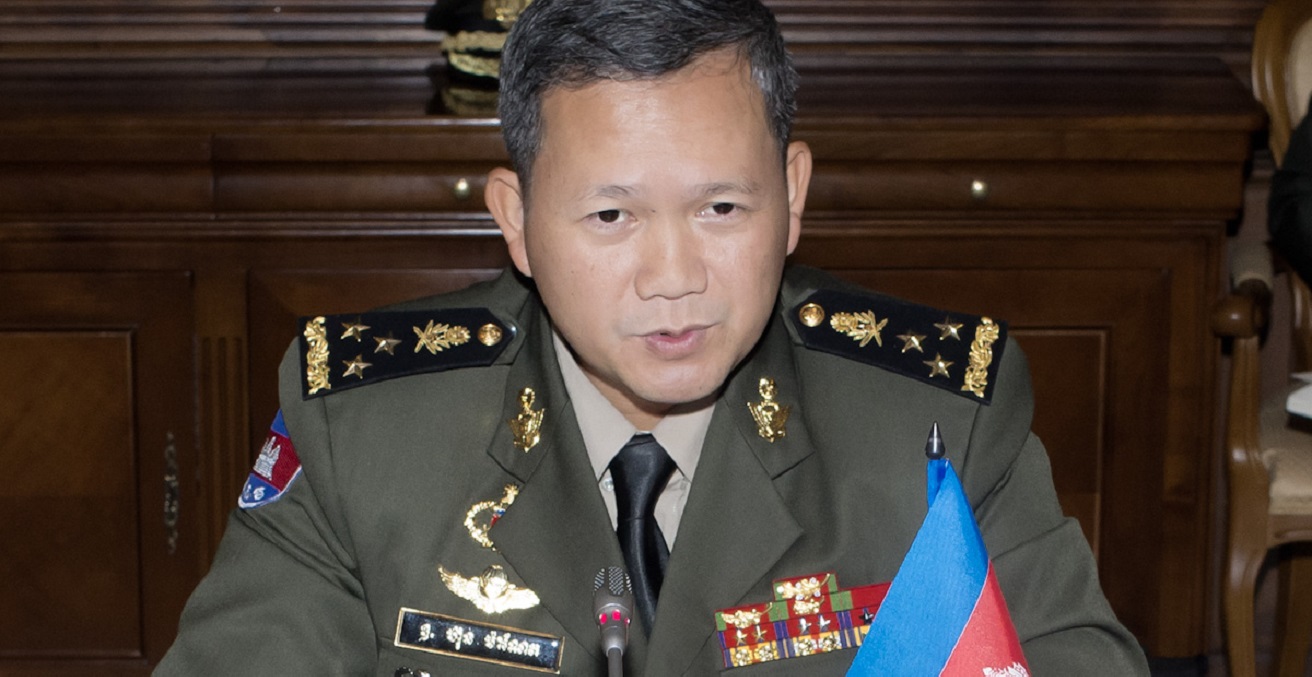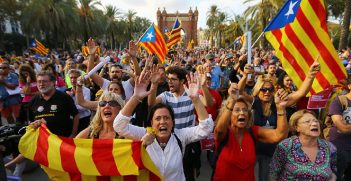Critical Questions Awaiting Cambodia’s Hun Manet

Hun Manet looks set to become heir apparent to Cambodian Prime Minister Hun Sen. With Cambodia’s democratic future hanging in the balance, many questions arise about the future of the prime ministership.
Prime Minister Hun Sen has three living sons, all of whom hold high-profile positions in the military or parliament. Lieutenant General Hun Manet is one of the deputy commanders-in-chief of the Royal Cambodian Armed Forces; Hun Manit is the head of the Defense Ministry’s intelligence directorate; and Hun Many, Hun Sen’s youngest son, is a member of parliament. However, among them, Hun Manet appears to be the heir apparent.
On June 22, Hun Sen revealed in a speech that aired live on television and Facebook that he has been grooming his eldest son, Hun Manet, for the country’s highest political office. His statement tempered recent speculation that he has been preparing for a dynastic handover of power to one of his sons.
Hun Sen has recently stressed that it is not wrong for him, as a father, to train his own son for the leadership skills and the political strategies Hun Manet will need to succeed him as prime minister. Now, it is becoming clear that mentoring and grooming Hun Manet for leadership may be part of a long-term plan for Hun Sen’s exit strategy from Cambodian politics.
Hun Sen will turn 68 next month. He has ruled Cambodia for more than 30 years. Despite his explicit intention to lead Cambodia for another ten years, it is perhaps reasonable to assume that he might, at the same time, be tired of politics. He does not have many exit options, and Hun Manet seems to be his best bet. In Cambodia, the transfer of power from Hun Sen to the next leader of the ruling Cambodian People’s Party (CPP) would, despite the general elections, be deliberated or decided by a handful of power brokers inside the party and key associates of the prime minister.
The speculation that Hun Sen will pass the baton to Hun Manet has been swirling around for years now, and this fact has been generally known inside and outside of Cambodia. That said, although Hun Manet appears to be the leading candidate for the prime ministership, there are at least two factors that most have not discussed. First, what roles would Hun Manit and Hun Many, both of whom have taken on increasingly significant and active roles in the military and national politics, play in Hun Manet’s Cambodia? Second, political science literature shows that the handover period in a flawed democracy like Cambodia is a fragile period, which may make or break the ruling party and the incoming successor. That is why the early period of a new leader will most likely see an increase in political violence and state control over the population. There are a lot of moving pieces that could go wrong while trust is built between the new leader, his or her key electorate, and the military.
Thus, the hope some Cambodians have for Manet, who they believe will steer Cambodia towards a more democratic path, is weak and perhaps too early to call. Whether Hun Manet likes it or not, he has numerous political challenges in front of him now and in the future. At present, he is overshadowed by his father’s “strongman” legacy of fame and power that have dominated Cambodian politics for the past three and a half decades. In the future, it is not clear how and in which direction will Manet lead Cambodia, if he has the chance.
Despite his credentials as the first Cambodian graduate of the US Military Academy West Point and a highly educated and approachable second-generation CPP cadre, Hun Manet faces an undeniably significant legitimacy dilemma. On the one hand, he needs to assure key power brokers in the CPP that he is a capable and appealing leader who can attract the support of young voters, who make up more than half of Cambodia’s population. On the other hand, he may need to guarantee that post-Hun Sen, the CPP will not splinter into multiple rival factions that would lead to internal division and pave the way for potential challengers from inside and outside of the party.
As a result, the uncertainty in Cambodian politics raises several critical questions. If Hun Manet were to take over from his father, how would the first decade, the most critical point of any dynastic leader, of his rule look like? How would his ascent to power shape the future Cambodian political landscape? Would Hun Manet lean moderately or significantly towards a more democratic path with concrete public reforms and loosening grip on the media, civil society and NGOs, and opposition groups, or would he maintain the current course of a democratic drift? How would elder voters who have rallied behind the CPP’s “7 January” sloganeering react to his succession? How about the post-Khmer Rouge, tech-savvy millennial voters who have leaned closer to Western-styled democracy? How would major foreign actors, namely China, Vietnam, and the United States, react to the succession politics? How would other powerful members of the CPP, whose sons and daughters may be as intellectually and politically qualified as Hun Manet for the premiership, respond to this transition of power? What roles would Hun Manit and Hun Many play in their elder brother’s government? And most importantly, are Cambodia, ASEAN and the world ready for Prime Minister Hun Manet?
Kimkong Heng, a recipient of the Australia Awards Scholarship, is a PhD candidate at the University of Queensland. He is also a Visiting Senior Fellow at the Cambodian Institute for Cooperation and Peace and a founding co-editor of Cambodian Education Forum. All views expressed are his own.
This article is published under a Creative Commons License and may be republished with attribution.





